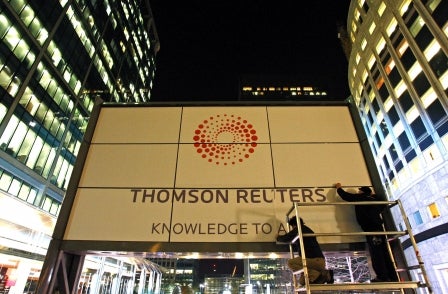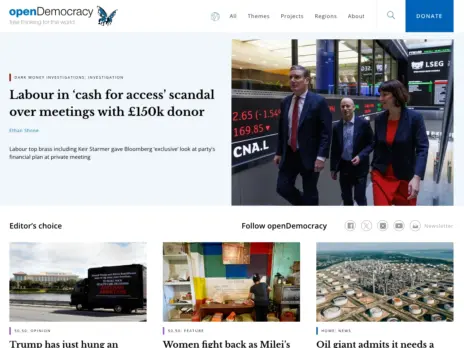
News agency Reuters has been hit with a High Court gagging order after receiving confidential information about investment company Brevan Howard Asset Management.
A High Court judge granted an interim injunction to BHAM after hearing that the information was taken from a package of seven documents sent to the possible investors with a notice that it was private and confidential and not to be disclosed.
No details of the nature of the information at the heart of the case were disclosed in Mr Justice Popplewell’s judgment.
BHAM, one of the largest hedge fund managers in Europe, first went to court on 10 March seeking an interim injunction after Reuters approached it to confirm the accuracy of the material it had received.
The material is said to have come from a package of seven documents which BHAM sent to 36 potential investors in electronic form.
Mr Justice Popplewell said Reuters had said it had not received the documents themselves.
“However on the evidence presently available, it is probable that the information Reuters has received is derived from those documents, most
probably originating directly or indirectly from one or more of the 36
potential investors to whom they were sent in the circumstances which I
have described,” he said.
The evidence suggested that the information received by Reuters could
only have been compiled by someone who had the documents BHAM had sent the potential investors – no other source from which the figures could have come had been identified.
“It is also probable, on the current evidence, that the documents
provided to potential investors were impressed with the quality of
confidence,” Mr Justice Popplewell went on.
“The confidentiality of the information supplied to the potential
investors is apparent from both its nature and the circumstances in
which it was conveyed to and received by them.
“It was sensitive commercial information not previously held in that
form but created for the purposes of making candid and responsible
disclosure to a limited number of potential investors; it would have the
potential to be valuable to BHAM’s competitors and damaging to BHAM’s
business if disseminated more widely.
“Although not a trade secret in the true sense, it is confidential business information which can properly be the subject matter of confidentiality.”
Reuters had said that it had received a “third party” document from a
source who had given an assurance that it was not obtained in breach of
confidence.
But its journalist, Maiya Keidan, would have been aware of the likely confidentiality of the information, said the judge, adding that in any event both she and Reuters were on notice of the confidentiality of the information after contacting BHAM.
Reuters argued that publication of the information would be in the public interest – but it was clear from Associated Newspapers Limited v HRH Prince of Wales ([2002] Ch. 57) that it was not enough simply to it establish that there was a public interest in publication – there also had to be a public interest in breaching the confidence which attached to it.
The judge said there was also no question in this case of publication being necessary to correct a false impression created by BHAM, to reveal any illegal or immoral dealing, to expose hypocrisy or to expose some improper practice or concealment, or to demonstrate incompetence.
“Material which might undermine BHAM’s public reputation is a matter of public interest but it lacks the weightier public interest which publication might carry if it were necessary to expose some behaviour ona the part of BHAM which involved iniquity,” said Mr Justice Popplewell.
“In this case there has been no misleading self-promotion by BHAM which could justify a public interest in publication on the grounds that it would involve exposing hypocrisy or incompetence, still less deceit or some other form of iniquity. Publication would not be for the purposes of demonstrating any behaviour which is even arguably behaviour deserving of moral censure.”
Email pged@pressgazette.co.uk to point out mistakes, provide story tips or send in a letter for publication on our "Letters Page" blog






